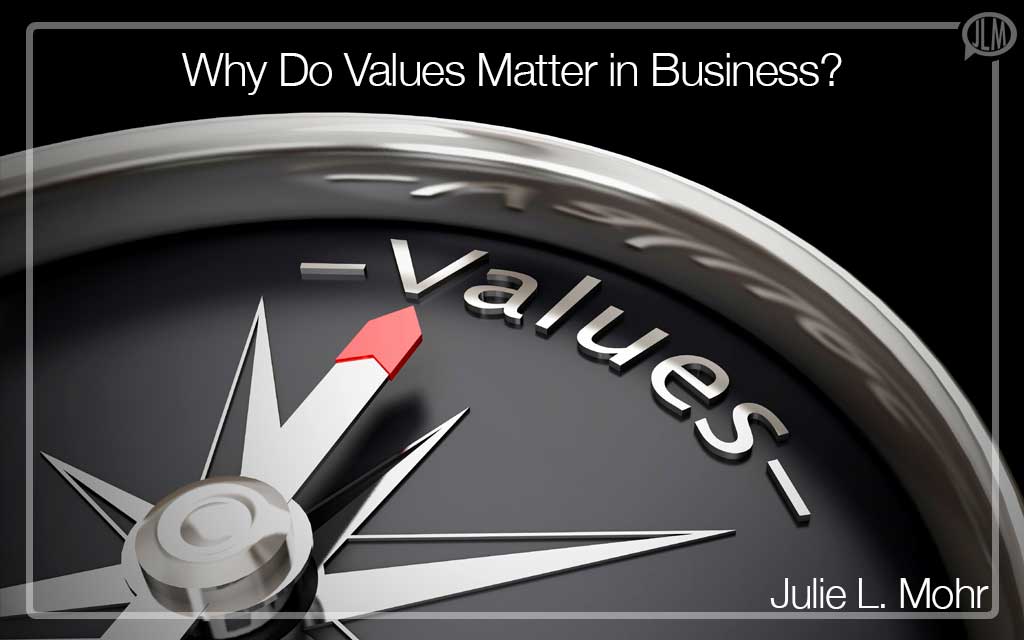![]()
In an organization, values are as crucial to success as they are for an individual. In my career, I have worked with companies that compromised their values, and I have witnessed the impact of this decision on both customers and internal staff. If an organization is willing to “cheat” the system for its gain, the line between ethical and unethical behavior becomes unclear. Once we make a choice that is questionable, it makes it easier to go against our value system in the future.
Organizations Live in the Public Eye
In the past, organizations could work in isolation with little worry about the public finding out about the inner workings. However, the Internet has changed the ability of an organization to keep things internal. First and foremost, employees don’t feel obligated to further the interests of the company over their interests. If they uncover something that is unethical, it is easy to be an anonymous whistleblower. Also, our customers don’t have any problems using social media to report on poor service or wrongdoings.
With an increasing demand for information, more institutions and individuals are looking for anything noteworthy to report to the masses. News feeds, Twitter feeds, LinkedIn—these avenues have an insatiable appetite for any information and companies’ behaviors are increasingly receiving a public airing. Whether it is poorly managed risk, exposure of customer data, or unethical financial management practices – it can be on the Internet in a matter of minutes and go globally viral.
Customers Have More Options
The days of having “tied” customers are long behind us. Technology advancements have made it extremely easy for new companies to enter a market and compete in new ways. Many startup companies find that by using cloud services, they can keep overhead down while dramatically improving agility. For our customers, this means there are more options than there were before. A company’s reputation can be damaged quickly, and our customers are more resourceful and knowledgeable about forming partnerships with companies that share their value system and have a sustained and positive public reputation.
Unless we have a strategic relationship with our customers, it is far too easy for customers to change providers. Only the strategic relationships with significant risk, impact, cost, and importance to the business, can sustain a poor public image.
Competitive Edge
In this ever-changing information age, companies need to stand out from the competition. A strong value system ingrained within the corporate culture will translate into better-managed relationships with your customers. Internal employees need to share that value system and drive value into every interaction. This value proposition creates credibility with your customers, and they will not hesitate to tell others about the level of professionalism and excellence in service they received from your company. With so many companies failing in the public eye, this is an excellent opportunity to stand out among the field.
Your brand says everything about your company and how you treat your customers. Even the smallest and insignificant failings of a value system can impact your public image. When employees know and understand that every decision and every interaction is a value-creating moment with your customers, then doing the right thing is the ONLY way and customers will have confidence in the company.
Trickle-Down Effect
A value system starts with the senior executives of a company. Not only are the executives responsible for establishing a vision and executable strategy, but they also need to be credible if they expect others to be credible. It seems cliche but true—the executives need to walk the talk and provide the best possible example. Even one decision that goes against the value system can have a trickle-down effect on staff feeling that if it is acceptable for the executives, then it is acceptable for all.
Any executive who expects others to be accountable to a value system that they are not accountable to will not be respected. It doesn’t take a significant screwup to cause a tiny fracture in this respect. Leaders that have a strong value system don’t need to demand respect; they earn it. But it only takes a few poor choices to put doubt in the minds of staff and even customers, who will begin to question their relationship with the company.
Because it is the Right Thing To Do
While the availability of information over the Internet, increased vendor options, and competitive edge provide us with compelling reasons, the bottom line is that a strong value system within a company is the right thing to do. Culture is important to the success of a company; too many companies fail because they do not create a culture where people want to work and where they love coming to work every day. When employees enjoy their work and respect their company, the results are transparent to the customer. Employees go the extra mile to serve the customer and to work with others to create better services. With better services and happier customers, the business will attain higher profits. And what company doesn’t want better profits?



